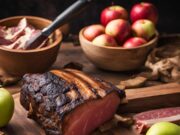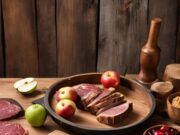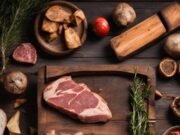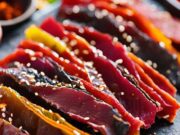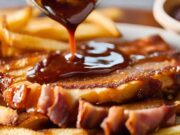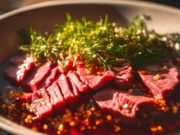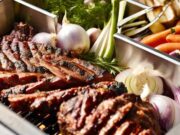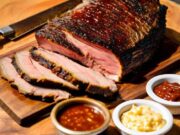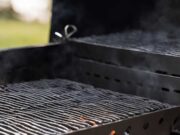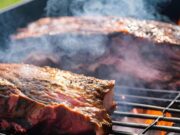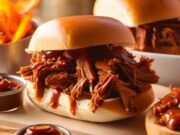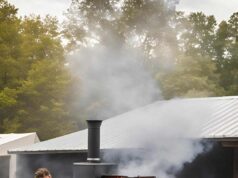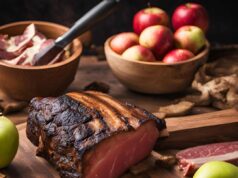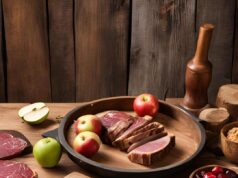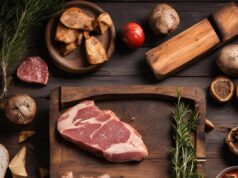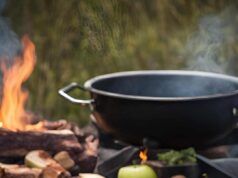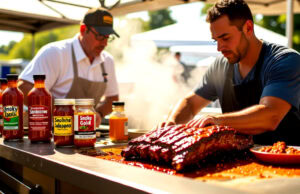Grilling enthusiasts frequently find themselves divided over which method produces the ultimate flavor.
While gas and electric grills have their advantages, charcoal grills are often recognized for their unique ability to impart a rich, smoky taste to food that many consider unparalleled.
This article delves into the science behind charcoal grilling, examining how different types of charcoal influence flavor, comparing various grilling methods, and addressing common misconceptions.
Whether you are an experienced griller or just beginning, you are poised to uncover the secrets to achieving that sought-after smoky profile in your dishes.
Key Takeaways:
- Charcoal grills offer a distinct smokier flavor compared to other grilling methods due to the way they produce smoke.
- The type of charcoal used can greatly impact the flavor of food, with options such as lump charcoal and flavored charcoal offering unique tastes.
- With the right techniques and considerations, charcoal grilling can be a safe and delicious way to achieve the perfect smoky flavor in your dishes.
The Science Behind Smoking
The science behind smoking offers a compelling exploration of how various heat sources and materials interact to produce distinctive flavors in food. When charcoal is ignited, it releases an array of compounds that contribute to the rich, smoky flavor typically associated with traditional grilling.
As the charcoal burns, it generates smoke containing complex molecules that adhere to the surface of the meat, enhancing its overall flavor profile. Understanding temperature control and the role of added wood chips is crucial for elevating the smokiness of your grilled dishes, making it essential for any grilling enthusiast to grasp these principles.
Types of Charcoal and Their Impact on Flavor
The type of charcoal you choose for grilling can significantly impact the flavor of your food, presenting various options that each offer distinct benefits and drawbacks.
When evaluating your choices, it is important to understand that briquettes, which are formed from compressed sawdust, contain additives that can influence the taste. However, they ensure even heat distribution, making them a reliable option for novice grillers.
In contrast, lump charcoal, crafted from pure wood, ignites quickly and burns at higher temperatures, delivering a more authentic smoky flavor without chemical interference—something many grilling enthusiasts value. Keep in mind that it tends to burn faster, which may necessitate more frequent refueling.
For those looking to create a unique flavor profile, experimenting with different types of wood chips alongside your charcoal can elevate the grilling experience, allowing for a delightful fusion of tastes that can make any barbecue truly memorable.
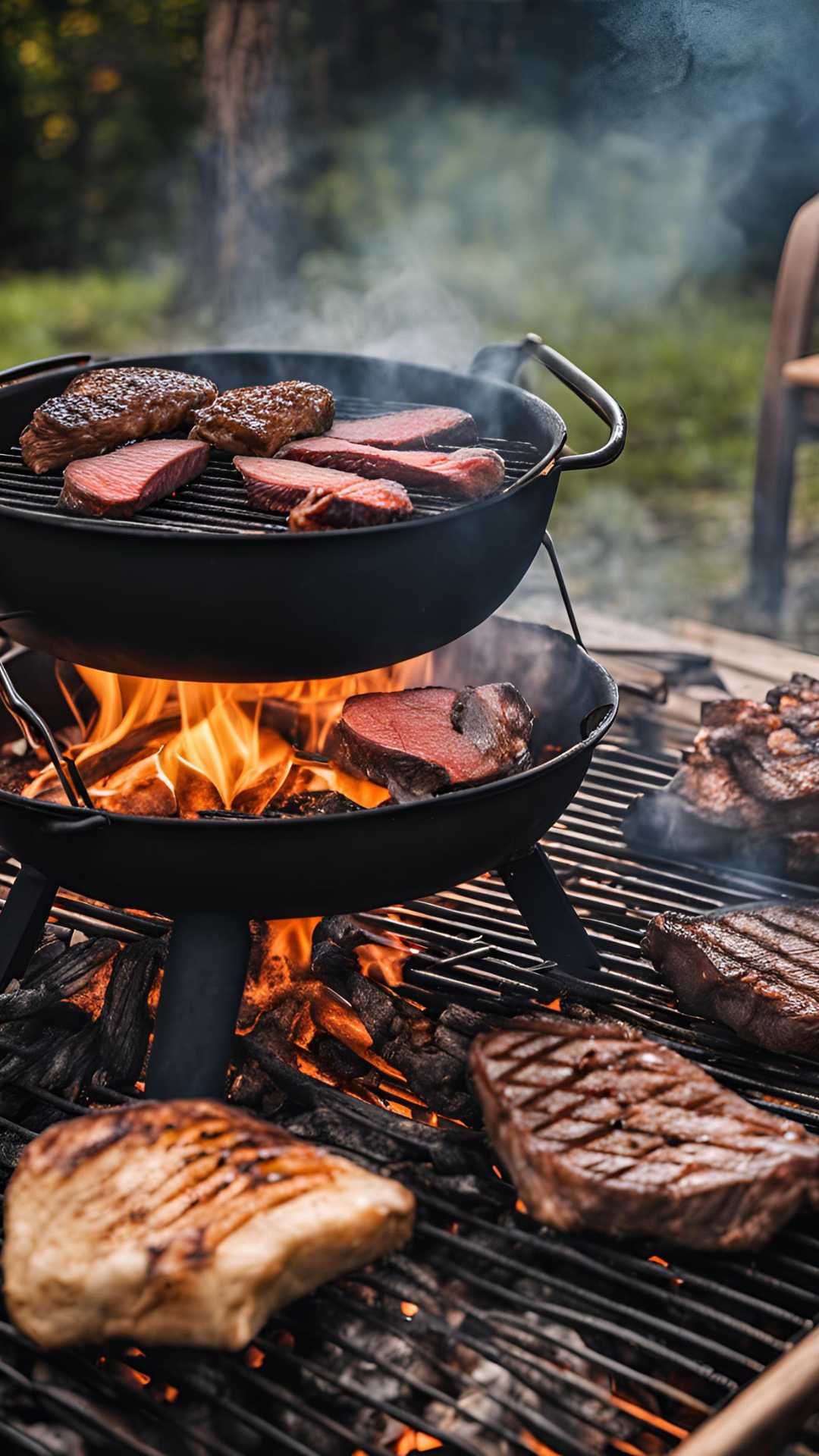
Comparing Charcoal Grills to Other Grilling Methods
When considering grilling, the debate between charcoal and gas grills frequently arises, with each method offering distinct advantages and flavor profiles. Charcoal grills are renowned for their ability to impart a smoky flavor that many barbecue enthusiasts desire, while gas grills provide convenience and precise temperature control.
Additionally, electric grills have emerged as a viable option for individuals with limited outdoor space or safety concerns during cooking. Understanding the differences in flavor production and cooking techniques among these methods is crucial for anyone aiming to enhance their grilling experience.
Flavor Profiles: Charcoal vs. Gas
The flavor profiles of charcoal and gas grilling underscore the distinct characteristics each method brings to the food being prepared. Charcoal grilling tends to deliver a deeper, smokier flavor due to the combustion of charcoal and the inclusion of wood, creating a unique taste that enhances the overall barbecue experience. In contrast, gas grilling typically yields a cleaner taste, which may lack the robust smokiness that many grilling aficionados seek. Therefore, the choice of grill is a critical factor in achieving the desired flavor in cooking.
When considering the cooking method, the way heat is generated plays a significant role in flavor development. Charcoal grills, with their slow-burning nature, facilitate a gradual infusion of warmth that caramelizes the surface of meats and vegetables, contributing to the much-desired char. The smoke produced during this process not only adds depth but also creates a tantalizing aroma that sets the stage for an irresistible meal.
Gas grills, on the other hand, offer convenience and control, allowing for quicker cooking times but often at the expense of that layered smokiness that elevates dishes. For individuals who appreciate the intricacies of flavor, the choice between these two methods can significantly impact the final outcome of their culinary creations.
Factors Influencing Smokiness in Grilling
Several factors contribute to the level of smokiness you achieve during grilling, including temperature control, airflow management, and the selection of wood chips to enhance flavor.
Temperature is crucial in the smoking process; while higher heat can lead to quicker cooking, it may also impede the meat’s ability to absorb smoky flavor.
Additionally, maintaining proper airflow is essential for ensuring an optimal burn and maximizing smoke production. Furthermore, the type of wood chips you choose can introduce a range of flavors that complement the natural taste of the meat.
Techniques for Achieving the Perfect Smoky Flavor
Achieving the ideal smoky flavor when grilling involves a blend of techniques, including the proper use of charcoal and wood chips, maintaining the optimal cooking temperature, and strategically placing food on the grill. By experimenting with various types of wood chips, such as hickory or mesquite, you can elevate the flavor profile of your meats. Additionally, ensuring a consistent temperature on charcoal grills is crucial for even cooking and maximum flavor absorption.
To enhance the delightful smokiness further, consider soaking the wood chips in water for at least 30 minutes before grilling. This technique prolongs their burn time and produces a rich, flavorful smoke that adheres beautifully to the food.
Utilizing a combination of charcoal and wood chunks allows you to create a more complex flavor profile, giving you the flexibility to customize the intensity of smokiness. Remember that arranging the food strategically—such as placing larger cuts of meat farther from the heat source—will help achieve even cooking.
By implementing these practical tips, you can unlock deeper, more satisfying flavors while grilling.
Common Misconceptions About Charcoal Grilling
Despite the popularity of charcoal grilling, several common misconceptions can obscure the understanding of its benefits and drawbacks. Many individuals believe that charcoal grilling is inherently unsafe or produces unhealthy food, while others assume that it requires significantly more effort compared to gas grilling.
However, when utilized correctly, charcoal grilling can deliver a flame-kissed flavor that many enthusiasts favor, all while providing a safe and enjoyable cooking experience.
Health Considerations of Charcoal Grilling
When discussing charcoal grilling, it is essential to consider health implications, particularly concerning the safety of using charcoal as a cooking method. Concerns about the carcinogenic compounds produced during grilling have sparked debates regarding the health effects of charcoal use. By understanding how to grill safely and effectively, you can mitigate these risks, allowing you to enjoy the flavorful benefits of charcoal grilling without compromising your health.
It is important for those who frequently grill to be aware of potential dangers, such as the formation of harmful substances when fats and juices drip onto the hot coals. To enhance safety, you can opt for leaner cuts of meat and use marinades that not only add flavor but also create a protective barrier against harmful chemicals. Additionally, utilizing a charcoal grill with proper ventilation and ensuring that the coals are fully ashed over can further minimize health risks.
By implementing these mindful practices, you can savor the smoky taste of grilled foods while prioritizing your well-being.
Popular Recipes for Charcoal Grilling
Charcoal grilling provides you with a wide array of delectable recipes that capitalize on the unique smoky flavor it adds to your food. From classic barbecue ribs to marinated steaks, the rich flavors produced through the charcoal cooking process are unparalleled.
By incorporating specific wood chips, you can enhance these recipes even further, allowing you to customize flavor profiles and impress your guests at any gathering.
Tips for Beginners in Charcoal Grilling
For those new to charcoal grilling, grasping the fundamentals can establish a solid foundation for a rewarding cooking experience that delivers exceptional flavor. Beginners should familiarize themselves with essential techniques, such as managing temperature and employing the two-zone cooking method, to achieve perfectly grilled meats.
Selecting the appropriate charcoal and wood chips can significantly influence the final taste, making it crucial for novice grillers to explore these elements.
Starting with high-quality lump charcoal can enhance your grilling experience, as it ignites quickly and provides a consistent heat source. It is also advisable for beginners to invest in a reliable chimney starter, which simplifies the process of lighting the charcoal without the use of lighter fluid that can compromise the flavor of the food.
Understanding the significance of preheating the grill is essential; a hot grill effectively sears meats, locking in juices and enhancing flavors. Additionally, experimenting with various wood chips can further elevate your grilling results, allowing for unique flavor profiles that cater to your personal preferences.
Call to Action
With a deeper understanding of the benefits and techniques of charcoal grilling, it is time for you to put that knowledge into action and explore the rich flavors this method can bring to your cooking. Whether you are grilling steaks for a family gathering or experimenting with new recipes, charcoal offers a unique and rewarding experience that can elevate your barbecue skills.
By embracing the art of charcoal grilling, you can unlock a world of smoky, savory delights that only this traditional method can provide. The interplay of heat and smoke allows for a diverse range of flavors to develop, turning each barbecue into an opportunity for culinary experimentation.
Consider inviting your friends and family to join you on this flavorful journey, where discovering the perfect blend of spices and marinades can transform an ordinary meal into a gourmet feast. So, fire up those coals and relish the satisfaction that comes from turning simple ingredients into something truly special.
Frequently Asked Questions
What is the difference between a charcoal grill and a gas grill?
A charcoal grill uses charcoal briquettes or lump charcoal as its main source of heat, while a gas grill uses propane or natural gas. This difference in fuel source can affect the flavor of the food cooked on each type of grill.
Why do charcoal grills offer a smokier taste?
Charcoal grills produce smoke as the charcoal burns, which adds a distinct smoky flavor to the food. This is due to the combustion process of charcoal, which releases a variety of aromatic compounds that enhance the taste of the food.
Do gas grills have any advantages over charcoal grills?
While gas grills may be more convenient and easier to use, they do not offer the same smoky flavor that charcoal grills do. Gas grills also do not produce as much smoke, which can result in a less intense flavor.
Can you achieve the same smoky taste with other types of grills, such as electric or pellet grills?
Electric and pellet grills may be able to produce a smoky flavor, but it may not be as strong as the flavor produced by a charcoal grill. Pellet grills use wood pellets as their fuel source, which can add a smoky flavor, but not as intense as that of a charcoal grill.
Is there a specific type of charcoal that produces a stronger smoky flavor?
Yes, lump charcoal tends to produce a stronger smoky flavor compared to briquettes. This is because lump charcoal is made from chunks of wood, while briquettes are made from a mixture of charcoal and other ingredients.
Can you still achieve a smoky taste on a gas grill?
Yes, by using techniques such as adding wood chips or chunks to a smoker box or foil packet, you can add a smoky flavor to food cooked on a gas grill. However, the flavor may not be as intense as that produced by a charcoal grill.



